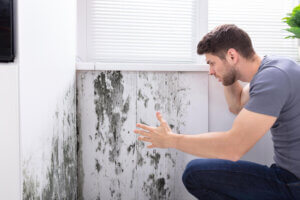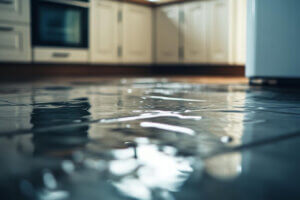Small leaks might seem harmless, but they can lead to big problems if ignored. Even a tiny drip can cause significant damage to your home over time. Addressing these issues early can save money, prevent health hazards, and protect your home’s structural integrity.
By taking small leaks seriously and fixing them as soon as they appear, you can avoid these costly and hazardous problems. Making it a habit to check for leaks and deal with them quickly ensures that your home remains safe and sound.
Hidden Costs of Ignoring Small Leaks
Ignoring small leaks can lead to hidden costs that add up over time. One of the most immediate impacts is on your water bill. A constant drip, even negligible, can waste much water. Over weeks and months, this wasted water results in a noticeable increase in utility bills. Fixing the leak promptly can help you save money and conserve water.
Another hidden cost of ignoring leaks is the potential damage to your home’s structure and furnishings. Moisture from leaks can seep into walls, floors, and ceilings. This trapped moisture can cause wood to rot, drywalls to weaken, and paint to peel. Repairing these damages can be very costly and time-consuming. The longer the leak goes unaddressed, the more extensive the damage will become.
Additionally, small leaks can affect your home’s resale value. Potential buyers might see signs of past or present water damage and get discouraged. They might worry about the costs and efforts needed for repairs. This could lead to lower offers or make your home harder to sell.
Health Risks Associated with Small Leaks
Small leaks might not seem harmful initially, but they can pose significant health risks. One of the primary concerns is mold growth. Leaks create damp areas perfect for mold spores to grow and spread. Mold can appear within 24 to 48 hours in the right conditions. Once it starts growing, it can be hard to remove altogether without professional help.
Mold releases tiny spores into the air, which can cause various health issues. People with allergies, asthma, or other respiratory conditions are especially vulnerable. Symptoms can include coughing, sneezing, runny nose, and itchy eyes. In severe cases, mold exposure can lead to more serious respiratory problems and infections.
Another health risk is the growth of mildew, a fungus similar to mold. Mildew thrives in moist environments created by leaks. While mildew might not be as harmful as mold, it can still cause allergic reactions and create an unpleasant smell in your home. Regularly checking for and fixing minor leaks can help maintain a healthier living environment.
Structural Damage Over Time
Small leaks can cause significant structural damage if left unattended. Water seepage can weaken your home’s foundation, causing cracks and instability. Over time, the consistent presence of moisture can deteriorate building materials like wood, drywall, and insulation. This structural weakness can seriously threaten your home’s safety and integrity.
Another area of concern is the damage to your home’s electrical systems. Water can seep into electrical wiring, leading to short circuits and potential fire hazards. Additionally, the moisture can corrode metal pipes, fixtures, and other components, compromising your home’s structural integrity. Prolonged exposure to water can also lead to rotting wooden beams and floor joists, which can be costly to repair or replace.
To prevent these issues, it’s crucial to address leaks as soon as they are detected. Regularly inspect areas prone to leaks, such as under sinks, windows, and near water appliances. Timely repairs will help avoid prolonged water exposure and the resulting structural damage.
How to Detect and Fix Small Leaks Early
Detecting and fixing minor leaks early can save you a lot of trouble. The first step in leak detection is to monitor your water bill. A sudden increase in water usage without an apparent reason could indicate a hidden leak. Additionally, regularly check common leak-prone areas like faucets, toilets, and under sinks. Look for water stains, damp spots, or signs of mold, which can all indicate a leak.
Another effective method is to conduct a water meter test. Turn off all water sources in your home and check the water meter. Wait for a few hours without water, then recheck the meter. If the reading has changed, you likely leak somewhere in your system. Once you identify the potential leak area, immediately fix it.
For minor leaks, you can handle the repairs yourself with essential tools and materials. Tightening connections, replacing worn-out washers, or using a plumber’s tape can often stop minor leaks. However, it’s wise to call a professional for more severe leaks or if you’re unsure about the repair. Prompt action will help you avoid further damage and ensure a safe living environment.
Conclusion
Ignoring small leaks in your home can lead to severe consequences, including hidden costs, health risks, and structural damage. By quickly detecting and fixing leaks, you can prevent these problems and protect your home. Implementing regular inspections and promptly addressing any issues will help maintain the safety and integrity of your living space.
Remember, even a tiny leak can become a significant problem if left unattended. Prioritizing leak detection and repairs will save you time, money, and stress in the long run. Your home is a valuable investment; taking care of it ensures a safe and comfortable living environment for you and your family.
If you’re facing water damage issues and need professional assistance, Premier Emergency Water Removal is here to help. Our team specializes in water damage restoration and water removal, ensuring your home is safe and mold-free. Contact us today to safeguard your home from the risks of water damage.



